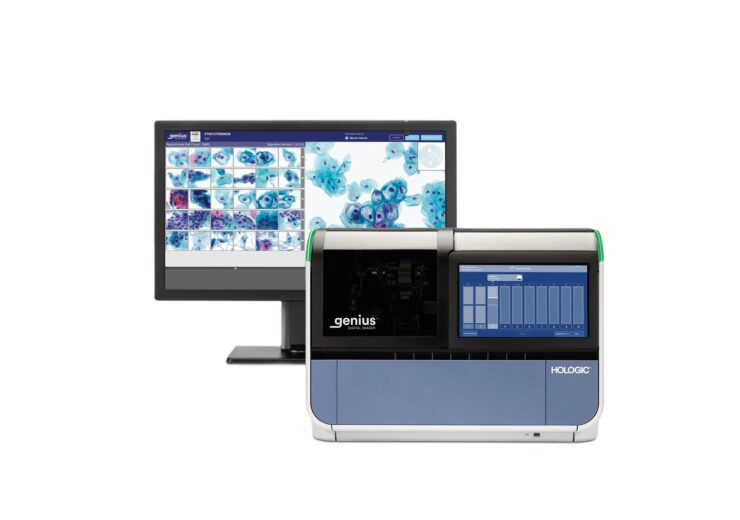The Genius Digital Diagnostics System combines deep-learning-based artificial intelligence (AI) with advanced volumetric imaging technology to help more accurately detect cervical cancer, improve workflow and enhance patient care

Genius Digital Diagnostics System. (Credit: Business Wire)
US-based medical technology company Hologic has received the US Food and Drug Administration (FDA) approval for its new Genius Digital Diagnostics System.
The Genius Digital Diagnostics System comprises the Genius Digital Imager for image acquisition and the Genius Cervical AI algorithm for image analysis.
It also comes with the Genius Image Management Server for image storage and the Genius Review Station for local or remote case review.
With the FDA approval, Genius becomes the first and only FDA-approved digital cytology system to combine artificial intelligence (AI) with advanced volumetric imaging technology.
The complete system, which helps identify pre-cancerous lesions and cervical cancer cells, is scalable and designed to fit the present and future needs of laboratories, said Hologic.
The company is already commercialising the Genius Digital Diagnostics System in Europe, Australia, and New Zealand, with plans to launch in the US in early 2024.
Hologic diagnostic solutions president Jennifer Schneiders said: “Hologic is a leading innovator in women’s health with a commitment to advancing cervical and breast cancer screening technologies.
“Our technologies have had a tremendous impact on decreasing cancer rates in women, and we are incredibly excited by the promise of Genius Digital Diagnostics.
“The system delivers more actionable and accurate insights for laboratories and healthcare professionals to enhance patient care.”
According to the company, cervical cancer is preventable and, detection and identification of cervical cancer in the earliest stages enables effective prevention and treatment of the disease.
The cervical cancer screening methods, including the Pap test, involve a sample collected at an OB-GYN office and sent to a lab, where the cells are transferred to a glass slide and reviewed under a microscope.
Hologic said that its Genius Digital Diagnostics System enables digital imaging of the glass slides, and an AI algorithm pinpoints the cells that cytologists and pathologists should review.
The new process and technology showed an overall improvement in sensitivity without a corresponding decrease in specificity.
It resulted in a 28% reduction in false negatives of high-grade squamous intraepithelial and more severe lesions compared to microscopic review, said the medical device company.
The Genius Digital Diagnostics System will help laboratories provide healthcare professionals with the information to guide more timely and effective treatment decisions for patients.
It also provides an opportunity for enhanced collaboration across the lab and other healthcare settings and allows cytologists and pathologists to review cases remotely, said Hologic.
